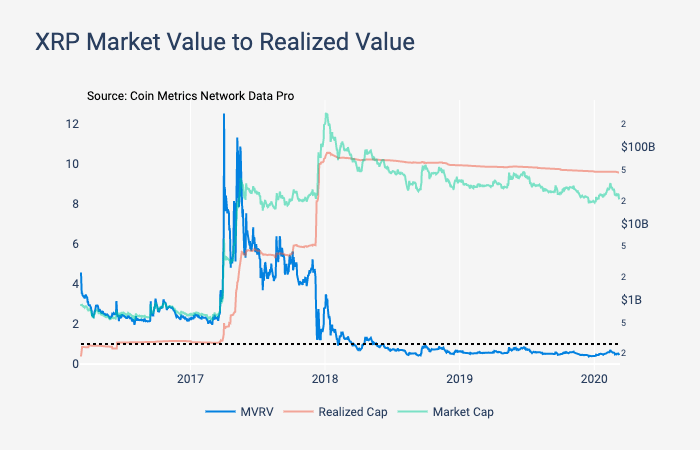Image via Shutterstock
Noelle Acheson is a veteran of company analysis and CoinDesk’s director of research. The opinions expressed in this article are the author’s own.
Back at the dawn of our evolution, one thing that helped us survive was our sensitivity to noise. If something startled us it was probably a threat and we had best deal with it, or at the very least pay close attention.
That’s still the case, and the noise in markets yesterday is a case in point.
Stock market crashes, oil price spillages and travel bans are indeed worth paying close attention to, even though there’s not much we can do to stop them.
Yet, noise is distracting. A misdirect, if you will. While we’re focusing on the sound of twigs snapping over here, something else is sneaking up on us from behind.
What I’m talking about is not necessarily sinister or even bad, and it has been going on for some time. It will, however, fundamentally change how our economies work, and it is very likely to have a significant impact on crypto assets.
I’m talking about the role of central banks.
Strong base
The first central banks emerged in Europe in the 17th century, in the form of Sweden’s Riksbank, which was intended to be a central lender and clearing house, and the Bank of England, founded as a joint stock company to purchase government debt. The U.S. Federal Reserve was created just over 100 years ago to manage the money supply and to act as a lender of last resort. (An interesting aside: The Fed, in its current structure, is a network of regional central banks, because the powers-that-be back then didn’t trust the idea of centralized finance. Go figure.)
The generally accepted role of central banks has in recent times been to manage a country’s currency and interest rates. Starting around the 1980s, it gradually expanded to cover capital flows, markets and the health of the banking system. And ever since Mario Draghi’s “whatever it takes” moment, in which he promised the European Central Bank would see the euro through its existential crisis back in 2012, central banks have been completely upfront about their changing role.
After central banks stepped into the void in the last crisis and did what they could to prop up flailing economies by lowering rates and “printing” money, we came to expect them to manage the economy.
It’s worth remembering that is not their original role. And that expectation is, in part, what has led us to the mess we are in today.
Tough choices
But what does this have to do with crypto assets, you ask? Bear with me a moment longer, we’re getting there.
First, let’s look at where central banks are today, in their role of “responsible parent.”
Since the general perception is that they pulled us out of the last crisis, we expect them to do the same again. But their most important tool last time was the ability to drastically lower interest rates. They can’t do that this time – rates are historically low, and in some regions even negative. Not much to drop there.
Perhaps they can stimulate demand by printing more money? That hasn’t worked well yet, in spite of trillions being pumped into the economy. It’s a stretch to think it will suddenly start to kick into gear now.
How about inflation, surely they can control that? That is, after all, one of their traditional roles. Yet, the unwinding of globalization, under way even before the coronavirus shut down supply chains, will also unwind the cost savings the freedom of movement of goods brought. With uncertainty leading to potential hoarding, and central banks trigger-happy with the consequence-free creation of new fiat funds, the stage is set for runaway inflation, difficult to control at the best of times.
And their coveted independence is likely to increasingly come under assault from politicians desperate for monetary stimulus, however ill-advised.
So, what will the central banks be able to do?
Big moves
If the central banks are unlikely to be effective going forward in managing capital markets, boosting demand or controlling inflation, what will we come to expect of them?
Regular readers of CoinDesk will know that central banks around the world have been exploring the concept of cryptocurrencies as a potential evolution of the current system. Some have even been experimenting, and Facebook’s announcement of its Libra project, which hopes to create a global digital currency, has accelerated plans almost everywhere.
I’m not saying that digital currencies issued by central banks are the answer to the global economy’s structural problems – I don’t think they are. And I am certain that any innovation, especially in finance, brings unexpected problems.
But if ever there was a time for central banks to make bold moves, it is now. By pushing forward with new ideas, they could establish a new kind of leadership. In times of extreme uncertainty, the understandable wall of resistance should be lower. And public sentiment is eager for any change that could bring hope of a new path of development.
With that, our perception of their role will shift again. They could go back to being managers of currency rather than stewards of the whole economy. The trust in the payments and settlement systems that broke in 2008 has not yet been repaired – now might be a good time to rebuild it. And by introducing a new type of currency, they could perhaps engineer a disentanglement of economic activity from capital markets, which could solve for some of the systemic vulnerabilities that have been building up over the decades.
These are seemingly impossible asks. They would require a reconfiguration of the complex wiring that binds markets, economics and politics. It could take decades, perhaps even a generation.
But the role of central banks needs to continue evolving. It’s not about saving face or making up for past mistakes. It’s about survival in a time of change.
We must sincerely hope central banks don’t become the “bad guys” in this unfolding drama. After all, we collectively let them take on more and more responsibility, and placed unreasonable expectations on their power. We have been in an “emperor has no clothes” moment for some time now – but over the coming months, more lights will be shined on our financial institutions and the nakedness will become hard to ignore. It’s time to find some new clothes.
Source




 Latest news:
Latest news: 





 Shop
Shop
 Bidding Open
Bidding Open

















